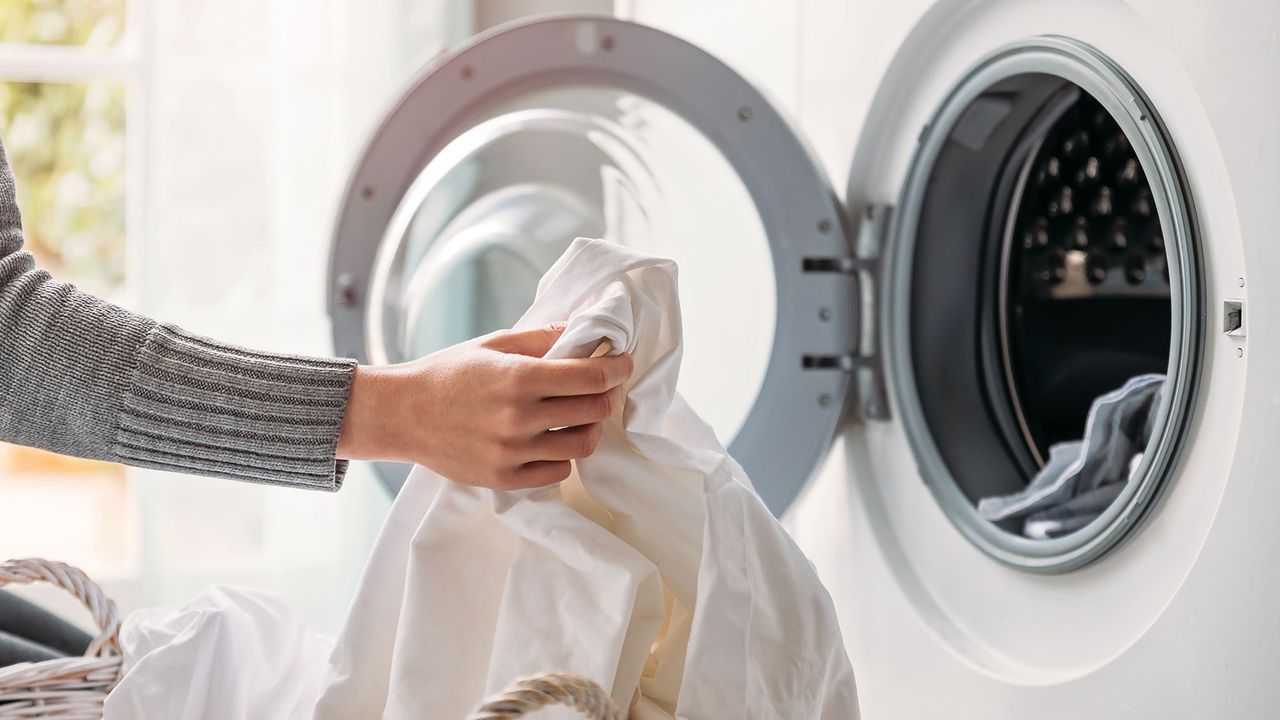Choosing a washing machine can be a daunting task, especially for families faced with hefty laundry loads. A mother with years of laundry experience has shared her insights, emphasizing five essential features to consider when purchasing a new appliance. Her recommendations are backed by industry experts, making them relevant for anyone in the market for a washing machine.
1. Front Load vs. Top Load: Assessing Your Space
When selecting a washing machine, one of the first decisions is whether to opt for a front-load or top-load design. In the United Kingdom, front-loading machines are particularly popular due to their space-saving benefits. For this mother, having a front loader meant less countertop interference in her kitchen.
According to Lisa Klages, Product Manager at Danby Appliances, front-load machines are also more efficient, using between 20% to 60% less water, detergent, and energy than traditional top-loaders. Additionally, they typically feature faster spin cycles, resulting in drier clothes.
2. Size Matters: Finding the Right Capacity
The capacity of a washing machine is another critical factor. This mother highlights her struggle with previous machines that couldn’t accommodate larger items like duvets. Given her family’s needs, particularly regarding allergies, a larger capacity was essential.
Experts recommend a washing machine capacity of between 4.5 and 5.2 cubic feet for households of four. For smaller families, a capacity of 3.5 to 4.5 cubic feet is usually sufficient. For families exceeding four members, a machine with a capacity of 5.5 cubic feet or more will be advantageous. As Lindsay Zollman, Senior Consumer Analyst at Hisense, points out, choosing the right size can prevent the inefficiencies of both overloading and underloading the machine.
3. Energy Efficiency: Cost and Environmental Impact
Beyond the initial purchase price, long-term energy costs are a significant consideration. Washing machines consume energy not only to operate but also to heat water. This mother prioritizes energy efficiency to save on utility bills.
The benefits of selecting an energy-efficient model extend beyond personal savings; they also contribute to environmental sustainability. Zollman stresses that energy-efficient washers reduce overall environmental impact. She advises looking for machines with the Energy Star label, which indicates superior energy efficiency.
4. Customizable Cycles: Meeting Individual Needs
The mother’s checklist also includes the importance of customizable wash cycles. While she prefers to avoid overly complicated appliances, having options is beneficial. Her ideal washing machine features cycles for delicates, wool, and activewear, along with a sanitizing wash option for allergy management.
For households with pets, Zollman suggests considering washers with specialized pet care cycles designed to handle pet hair and allergens effectively. This flexibility allows users to tailor wash settings based on the specific needs of their household, enhancing the overall laundry experience.
5. Smart Features: Embracing Technology
While her current washing machine lacks smart technology, this mother acknowledges the appeal of future appliances equipped with such features. Smart washers can be operated remotely via apps, providing notifications and alerts that enhance user convenience.
Innovative models, such as Samsung’s AI washing machine, offer advanced functionality, adjusting wash cycles based on load weight and soil levels. The integration of these smart features simplifies laundry tasks and optimizes resource use.
In conclusion, investing in a washing machine involves careful consideration of multiple factors, including design, capacity, energy efficiency, customizable settings, and technological advancements. By focusing on these key features, consumers can make informed decisions that suit their unique household needs, ultimately leading to a more efficient and stress-free laundry experience.
